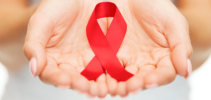The material verified by the global agency Unitaid is used to combat infections such as HIV, tuberculosis, malaria, and also in interventions in favor of the health of women and children in addition to responding to global emergencies.
ADVERTISING
Carbon emissions and plastic pollution
The publication “From milligrams to megatons: a climatic and natural assessment of ten essential health products” also examines topics such as obtaining raw materials, waste, carbon emissions e plastic pollution.
One of the findings is that the supply chains for these products emit more than 3,5 million tons of carbon per year. To reduce emissions, it would be necessary to recycle solvents and switch to renewable energy.
Unitaid also highlights that healthcare at a global level has a major impact on the environment.
ADVERTISING
The analysis considers it possible to reduce emissions by 70% by 2030. Half of this reduction would occur without increasing production costs. To address the remaining 30% there would be additional costs.
The document was compiled in preparation for the COP28, which runs until December 12th in Dubai and will have an event day dedicated to the nexus between climate and health.
Low and middle income countries
For Unitaid, global public sector partnerships play an essential role in preventing and treating disease in low- and middle-income countries.
ADVERTISING
Every year, the group of economies records the death of millions of people from preventable and treatable diseases because they cannot access necessary health products.
On the other hand, the requirements for providing care are increasing with climate change, considered the greatest threat to public health this century, combined with the degradation of nature.
Product disposal
One of the suggestions to contain the damage caused by health value chains is to adapt the sector to climate risks and reduce greenhouse gas emissions and the consequences on nature.
ADVERTISING
Unitaid calls for greater resilience for healthcare value chains, especially in activities required to source raw materials and then manufacture, distribute, use and dispose of products.
Healthcare represents around 4,6% of global net emissions, but it can help directly halt climate change and reduce its impacts on health with measures to reduce emissions involved in the sector.
(With UN News)
Read also








